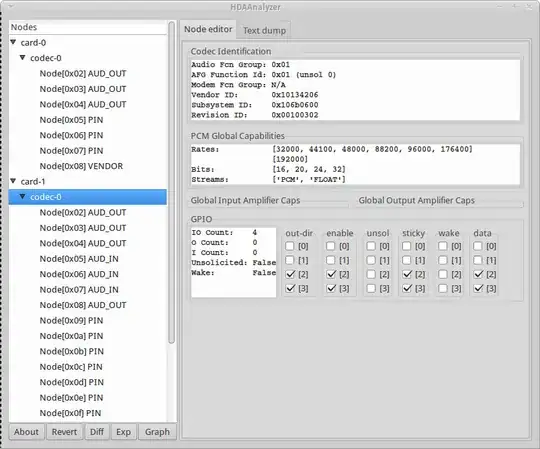I have just switched from OSX to Xubuntu 14.04 on my iMac Late 2013. I've got everything running smooth, except for my freakin' audio card. It works occasionally for a few minutes and then it just stops. I can't hear anything, but the sound indicator in the sound settings is moving.
I followed every single possible solution on askubuntu and the Ubuntu forums but I couldn't get it to work permanently. The only thing that kinda works for me is force reloading the pulse audio driver. But I gotta do that a couple of times, including logins and log outs to reactive the sound for a few minutes.
I really don't want to give up, and hope you guys can help me figure this one out. I don't want to go back to OSX, I really like my new found freedom!
Let me know if you need more information, any help would be greatly appreciated!
**** List of PLAYBACK Hardware Devices ****
card 0: PCH [HDA Intel PCH], device 0: CS4206 Analog [CS4206 Analog]
Subdevices: 1/1
Subdevice #0: subdevice #0
card 0: PCH [HDA Intel PCH], device 1: CS4206 Digital [CS4206 Digital]
Subdevices: 1/1
Subdevice #0: subdevice #0
card 1: NVidia [HDA NVidia], device 3: HDMI 0 [HDMI 0]
Subdevices: 1/1
Subdevice #0: subdevice #0
card 1: NVidia [HDA NVidia], device 7: HDMI 1 [HDMI 1]
Subdevices: 1/1
Subdevice #0: subdevice #0
Card: HDA Intel PCH
Chip: Cirrus Logic CS4206
